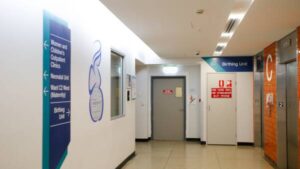
On October 15, 2025, at the Singapore Society of Oncology Annual Scientific Meeting (SSO ASM 2025), Gene Solutions unveiled advancements in Molecular Residual Disease (MRD) and multi-omics technologies that could revolutionize cancer care in the Asia-Pacific region. The event highlighted the importance of transitioning from reactive to proactive cancer management, emphasizing Singapore’s pivotal role as a center for innovation and collaboration in healthcare.
Exploring Precision Oncology
The symposium, titled “Advancing Precision Oncology: MRD and Multi-Omics in Solid Tumors,” brought together leading oncologists and experts in molecular biology to discuss the impact of circulating tumor DNA (ctDNA) MRD assessments. These assessments are crucial for monitoring cancer at the molecular level and hold several key advantages:
- Early Detection of Recurrence: MRD assays can identify molecular signals of cancer recurrence before traditional imaging methods, allowing for timely intervention.
- Assessment of Surgical Outcomes: The ability to determine residual cancer post-surgery helps in crafting effective follow-up strategies.
- Monitoring Treatment Response: Tracking ctDNA clearance facilitates dynamic adjustments to treatment plans.
- Risk Stratification: Identifying high-risk patients enables personalized treatment approaches, potentially lowering unnecessary toxicity for those with lower risk.
The integration of these technologies aims to enhance patient care and outcomes across diverse healthcare systems in the region.
Innovative Scientific Approach
Unlike conventional single-modality tests, Gene Solutions employs a comprehensive platform that combines DNA, RNA, and AI-enhanced multi-omics signals. This approach not only improves ctDNA sensitivity but also aids in detecting complex gene fusions and predicting primary tumor locations. Such advancements pave the way for more informed and personalized treatment decisions.
Recent studies published in JCO Oncology Advances and npj Breast Cancer underscore the potential of ctDNA-based MRD testing. These studies suggest that such monitoring strategies can predict early recurrence and contribute to cost-effective patient care in real-world settings.
Operating from its CAP-accredited laboratory in Singapore, Gene Solutions is dedicated to fostering scientific collaboration and advancing genomic research throughout the Asia-Pacific region. The company has successfully delivered over two million genetic tests, underscoring its commitment to precision medicine.
A Call for Collaboration
During the symposium, Ida Deleskog Lindstroem, Global Medical Affairs Director at Gene Solutions, articulated the need for collaboration in this evolving field: “Molecular residual disease (MRD) and multi-omics platforms show promise in advancing precision oncology by enabling clinicians to detect cancer recurrence earlier and tailor treatments more effectively. We invite oncologists, researchers, and healthcare partners across Asia-Pacific to collaborate in advancing these technologies, fostering data-driven, personalized care that aims to improve patient outcomes across diverse healthcare systems.”
The discussions at SSO ASM 2025 mark a significant step towards enhancing cancer care through innovative technologies. As the landscape of precision oncology continues to evolve, the emphasis on collaboration among researchers and healthcare providers is vital for improving patient outcomes and advancing the field.
For further details about the symposium highlights, visit Gene Solutions.






